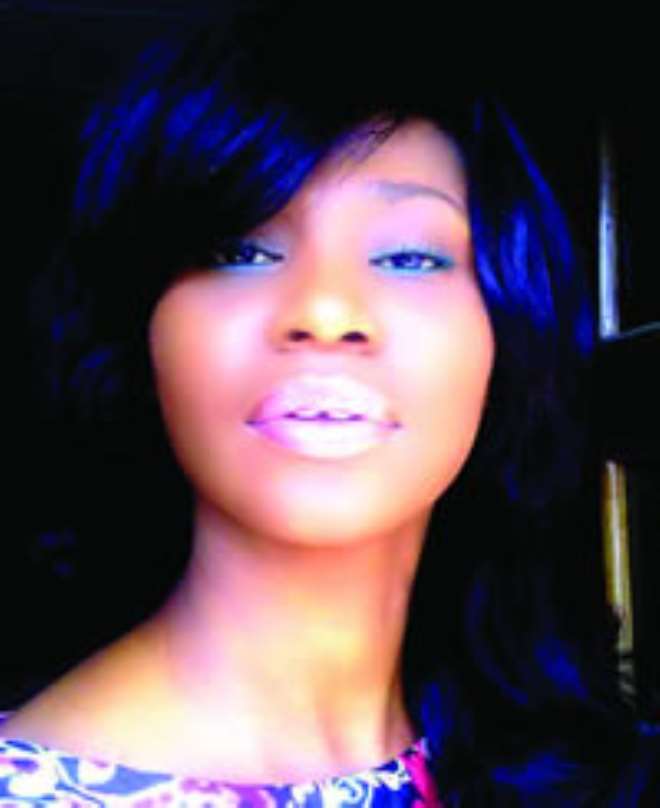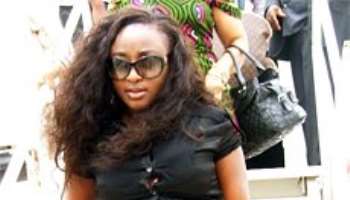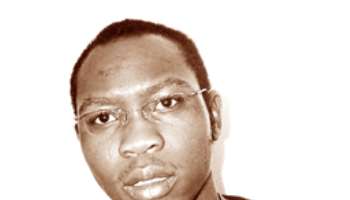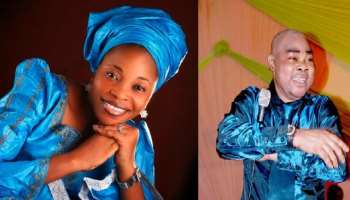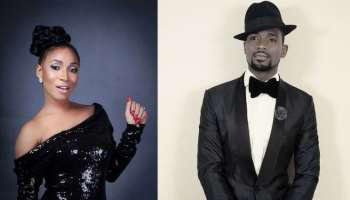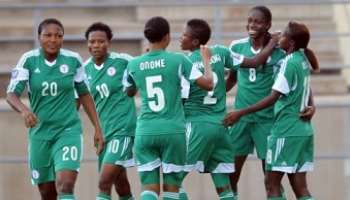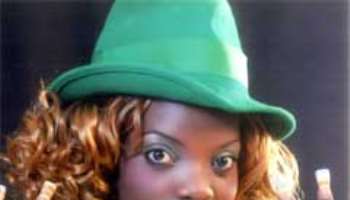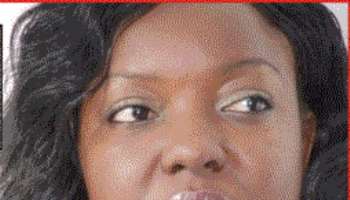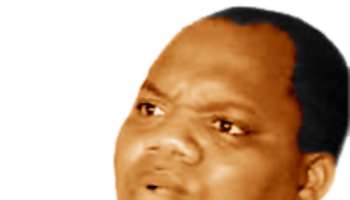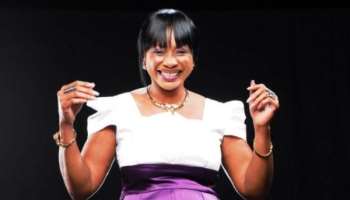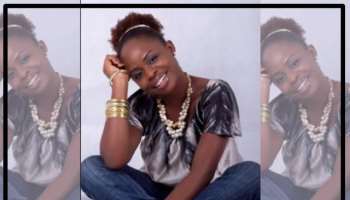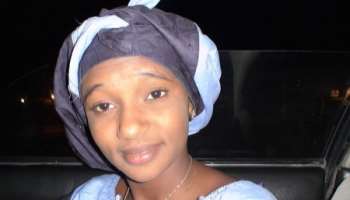Dad bought me my first bra –Nse Ikpe Etim
Nse Ikpe Etim is the sweet lovely star with an unassuming air; an actress with extraordinary talent. In this interview, she shares the pain of her father's death and how she learnt to become a survivor. Excerpt…
When actually did you start acting?
I tried it years ago. Then I didn't take it serious because I saw it like I was doing the producer a favour, and after that, gradually.
Your career didn't blossom until after your return
Should we say things happen for you when you are ready for them? I think that's how it happened. In all honesty, I think it's the hand of God. I cannot attribute it to anything else. I cannot attribute it to any man or person or even my own effort, not because I am good or a professional. It's just God. That's all I know,
It wasn't until you did the movie, Reloaded
Yeah, it was not until Reloaded. I got into the character; I imagined how some married women would react in such situation. I have never being married but I just imagined how they would react from my line as a woman. I pictured it as a situation whereby it is the woman that owns most of the money. That's why it hurt her that much. You know, sometimes women love so much they won't let go, and sometimes they love so much they have to let go so that the person can be happy. So, the character was a strong woman. I don't even know how I got into the character, because I just got the script few weeks to production and I was just coming back. I don't even know how I managed to interpret the role perfectly.
How did you get the role?
The producer gave it to me. She felt I could work around the character, although I initially didn't want to play the role.
Was it a blessing?
Yeah, it was a blessing in disguise. But I don't wish my enemy to be an actress.
Why?
Because it's a hard life.
If it were that hard, why did you not choose to stay in banking?
Banking is a harder life.
What is hard in acting? You smile to the camera, collect big money, people write about you, what is hard in that?
That's the thing. You lose your privacy and that's something you can never get back. It's like losing your virginity, which you know you can never get back. That's what happens in acting. As an actor you lose your privacy.
What's the big deal about losing your privacy?
Oh, you think it's not a big deal? I am a very private person, but as an actress you cannot be private. It's very difficult.
Let's talk about your recent movie, Phone Swap. During filming you dislocated your arm, what happened?
During filming I fell off a motorbike (okada). The character I was playing was meant to take a bike. So after several takes I just found myself on the floor. Initially, I didn't feel anything except pain on my back. Then three days later I wanted to wear my slippers, then I leaned on my arm and the arm just gave way. That was when I felt the real pain.
What did you do?
I crawled to the door, opened it and called for help. By divine intervention, Kunle Afolayan called at that particular time to check on me, and when he got to know he called a few people around Ikeja to check on me and some friends came to my aid. I really appreciate them all, although it took like an hour and a half for them to set my arm back. When I got to the hospital, there was a lot of drama but in the end they got it right.
Have you felt any pain since then?
I think it's today that I have been able to lift the hand well. I have been taking some muscle relaxers to help and it is getting better. But I still have to wear a pouch.
I hope the money was worth the dislocation?
Yes, it was worth it, even more. And the experience was worth it too.
You seem to be getting the big jobs...
This is just guest appearance. In this case I wasn't originally cast for the role. I just got a call. I had already left for Abuja, then I got a call from Rita saying Mildred said bla bla bla. Then I spoke with Mildred, asking her how come I just got my script and would be shooting tomorrow? It was very funny. Then I came and only God knows how I got into the character in one day. But like Shakespeare said, “apparel does maketh a man.” So, I think as soon as I was adorned, and Ugo made my hair, the director started with me and I just got into the character.
What is it like working with Jim and Kunle, the fact that Jim is white and Kunle a black guy?
There is really no difference, even their attitude to work isn't really different. You know Kunle likes doing things to perfection, which is also the same with Jim, and Mildred as well. So it's all the same attitude but different projects. I don't see any difference, and you know it's good to always work well when you work so that you don't disgrace yourself.
Tell us about your childhood?
The early part of my childhood I didn't stay with my parents. I grew up with my god-parents; they are both white and English is like my first language. I grew up with a total mentality. My mother was very young when she had me; she was still going through school. She was about 14/15.
It was so bad I didn't even know my mother. She told me that when she came back I asked her to carry me if she was my mother. That is just the mind of a child. I could have said that to anyone. I always wanted her to prove that she was my mother, and it was so bad that when they wanted to take me with them, my dad was like 'is this how my first child would go and become an oyinbo?
He didn't want that to happen. It was so bad I couldn't eat our food. I was always eating chips every other day. My dad was mad he actually told them to stop giving me chips and I would cry in front of his door until I had it. Sometimes I would even lick ketchup. But now I can't do a lot of these things. Every weekend we would go to this popular hotel in Kaduna and just hangout as a family and have fun. It was so much fun. I had one of the best childhoods anyone could ever wish.
What are the not too pleasant childhood memories you have?
I dislocated my arm when I was young because of rice and stew; I love food a lot. The turning point for me, where childhood stopped, was when my father died. I really loved acting like a child, but immediately my father died, everything changed for me. It made me become an adult when I shouldn't be. So I lost my childhood when he died. I had to play more roles and live up to expectation. It was too much and my mother, God bless her, at 31 she had six children and I am the first. But now I look back and can only thank God. That is all I can say. It was mentally draining.
My father was misdiagnosed of gall stone, which was really not the problem compared to what we discovered after surgery. After surgery they found they were treating him for something else, while his liver had deteriorated completely. It was really painful because of the signs, and there was nothing like liver transplant at that time. So nothing could be done. That was in 1989. He passed on in 1990 (January 1).
Do you think if he was properly diagnosed, something could have been done?
Well, I think if you know what is wrong with you, you can deal with it. Maybe something could have been done. That is the thread I like to hang on to. But it is very sad, really sad. Sometimes I wonder why we have professionals and people still get misdiagnosed. We only knew when he finally went to England.
What memories come to your mind when you remember your dad?
My dad was an amazing person. He would set you right; he really loved us. He was the type that would let you do whatever you want to do. The only misunderstanding we had was the fact that I chose to do art, but over time he agreed with me.
In 1989, you were not acting
Of course, I wasn't. I was in secondary school. He wanted his daughter to be a doctor, but that wasn't for me. Yet he encouraged us. My dad was that kind of person. He was very caring. For example, my first purple bra was from my father because I sent him a message that every girl is wearing this type of bra in school, and he bought it for me even when I didn't need it. He bought me shorts and always encouraged me to dress smart, saying long things don't make you look smart. That is how my father was and I really miss him.
How did you survive the period without a father?
By the time I got into the University of Calabar, my mum still tried to make it look as if nothing had happen. She did her best to give us all we wanted.
What memories of him do you still have?
Most are fun memories, because I used to follow my dad around a lot. I used to follow him to play tennis and we go on road trips together. My dad would wake up in the morning and tell me to come along with him to Bauchi, just like that. And we would drive from Jos to Bauchi. I remember thinking once that my mom would kill me when she sees this. I think they had a misunderstanding and weren't talking. My dad would buy suya and bring home, and open a bottle of beer and eat the suya.
The second day when they made up, my mom called us to eat from the suya my dad brought home, but when he came out of the room we had eaten his suya. So he had to eat the food my mother cooked, because there was nothing for him to eat. So that actually took care of the misunderstanding. I would say to myself that marriage can be easier judging by my parents, because my mum always made it look funny. If something was going to happen, my mum would turn it around and make it appear funny and we would all laugh about it and they would sort it out. Even when my dad tried to 'bone', my mum would say something funny and everybody would be at ease.
Was there any particular trying moment when your dad was not there?
There were lots of trying moments.
Let's hear one or two that come to your mind?
I will tell you one. When you have to pay school fees, what would you do? You would look for money, and you know I had younger ones in school too.
What did your dad do for a living?
He was a banker.
Was that why you went into banking?
Maybe he influenced me, or even my mother, but in the end I didn't do it.
What's your experience in the banking hall?
Well, I wasn't in the banking hall. I was more into commercial banking and treasury. I just think it wasn't meant for me. I thought I was having fun, but when I looked at it again, it wasn't the type of thing I wanted to do for too long. I didn't want a career out of it. Maybe if I was into corporate management I could have done better.
So, why didn't you pursue a career in TV broadcast?
I did a bit of TV shows for some time. I actually had a particular programme I wanted to start, but after a while I just forgot about it.
What does your mum do?
My mum was a teacher and she taught at the Central Bank of Nigeria (CBN) school. She is retired now. The fact is, it wasn't easy at all but she tried her best. My godfather, my father's friend, also tried as well to support us and before I knew it my mum said to me, listen, you can learn how to cook, you can make extra money.
So she opened a small restaurant, which I ran single-handedly, cooked all the food and made money from it. For a while it kept me going and it was amazing. It was small, yet people came. By the time I was in school, I did a mini-programme on breakfast television show for NTA Calabar and they paid me, not big money, but something. I think N500 at that time.
Would you say life has been fair to you?
I wouldn't complain, but really I think life has been fair, though it could be better. But life has been fair and I have good people around me, great friends and I am thankful to everybody in my life.
Latest News
-
 "If You're For Me, I Am For You" - Cubana Chief P
"If You're For Me, I Am For You" - Cubana Chief P -
 "3 Days To Go" - Femi Adebayo Urges Fans To Get S
"3 Days To Go" - Femi Adebayo Urges Fans To Get S -
 "Stop Asking Me Questions About Speed Darlington"
"Stop Asking Me Questions About Speed Darlington" -
 "Benue Is The Most Underdeveloped State I've Ever
"Benue Is The Most Underdeveloped State I've Ever -
 Stan Alieke Urges Young Professionals To Take Lin
Stan Alieke Urges Young Professionals To Take Lin -
 Chizzy Alichi Teases Fans With Baby Reveal, Promot
Chizzy Alichi Teases Fans With Baby Reveal, Promot -
 "I'm Not Wearing Makeup From July 4th Till Decemb
"I'm Not Wearing Makeup From July 4th Till Decemb -
 "Stop The Challenge Of Mocking Kids With Down Syn
"Stop The Challenge Of Mocking Kids With Down Syn -
 Regina Daniels Celebrates Sons As They Mark Birthd
Regina Daniels Celebrates Sons As They Mark Birthd -
 Speed Darlington Threatens To Sue NAPTIP For Defam
Speed Darlington Threatens To Sue NAPTIP For Defam


